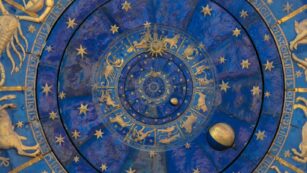Astrology has captivated minds for centuries, weaving its intricate tapestry of celestial influence into the fabric of daily life. People often turn to the stars, seeking guidance and insight into their personal journeys. Whether it’s the allure of horoscopes or the deeper exploration of natal charts, astrological musings offer a unique lens through which to view the world.
Astrological Musings
Astrology offers a unique lens through which individuals explore their inner selves and navigate their experiences. By analyzing celestial patterns, astrology provides insights that resonate with many personal journeys.
The Importance of Astrology
 Astrology holds significance in various aspects of life. It fosters self-awareness by revealing personality traits linked to astrological signs. It aids in decision-making by illuminating potential challenges and opportunities based on planetary positions. Studies show that about 30% of adults regularly consult astrological sources for guidance. Astrology also strengthens relationships by offering compatibility insights between zodiac signs, enhancing communication and understanding among partners and friends.
Astrology holds significance in various aspects of life. It fosters self-awareness by revealing personality traits linked to astrological signs. It aids in decision-making by illuminating potential challenges and opportunities based on planetary positions. Studies show that about 30% of adults regularly consult astrological sources for guidance. Astrology also strengthens relationships by offering compatibility insights between zodiac signs, enhancing communication and understanding among partners and friends.
Different Schools of Thought
Astrology encompasses several schools of thought, each with distinct methodologies and beliefs.
-
Western Astrology focuses on the twelve zodiac signs, incorporating elements like natal charts, aspects, and transits to provide guidance.
-
Vedic Astrology, originating from India, emphasizes the moon’s position and uses a sidereal zodiac, offering insights through techniques like dashas and yogas.
-
Chinese Astrology relies on a twelve-year cycle, assigning animal signs that represent specific characteristics and influences on personality and fate.
-
Esoteric Astrology delves deeper into spiritual and psychological dimensions, emphasizing the soul’s evolution and transformative aspects of planetary influences.
These varying perspectives contribute to a richer understanding of astrology, making it a multifaceted tool for exploration.
The Role of Zodiac Signs
Overview of Zodiac Signs
 Zodiac signs stem from the twelve constellations through which the sun appears to move annually. These signs include Aries, Taurus, Gemini, Cancer, Leo, Virgo, Libra, Scorpio, Sagittarius, Capricorn, Aquarius, and Pisces. Each sign corresponds to specific dates and embodies distinct attributes, such as:
Zodiac signs stem from the twelve constellations through which the sun appears to move annually. These signs include Aries, Taurus, Gemini, Cancer, Leo, Virgo, Libra, Scorpio, Sagittarius, Capricorn, Aquarius, and Pisces. Each sign corresponds to specific dates and embodies distinct attributes, such as:
-
Aries: Assertiveness and leadership
-
Taurus: Stability and sensuality
-
Gemini: Versatility and communication
-
Cancer: Nurturing and emotion
-
Leo: Charisma and creativity
-
Virgo: Precision and practicality
-
Libra: Harmony and diplomacy
-
Scorpio: Intensity and depth
-
Sagittarius: Adventure and optimism
-
Capricorn: Discipline and ambition
-
Aquarius: Innovation and independence
-
Pisces: Empathy and intuition
Astrologers analyze these signs, alongside other astrological elements, to interpret personality nuances and predict behaviors.
Compatibility and Influence
 Zodiac signs significantly influence personal relationships, providing frameworks for compatibility assessments. Astrological compatibility evaluates the interaction between different signs, helping individuals understand dynamics within relationships. Some compatible pairings often include:
Zodiac signs significantly influence personal relationships, providing frameworks for compatibility assessments. Astrological compatibility evaluates the interaction between different signs, helping individuals understand dynamics within relationships. Some compatible pairings often include:
-
Aries and Leo: Shared energy and passion
-
Taurus and Virgo: Mutual appreciation for stability
-
Gemini and Aquarius: Intellectual connection and understanding
-
Cancer and Scorpio: Emotional depth and loyalty
-
Libra and Sagittarius: Balancing freedom and connection
Astrology also offers insights into how planetary transits affect individuals’ moods and decisions. For instance, a Mercury retrograde can challenge communication among all signs, prompting conflicts or misunderstandings. By understanding these influences, individuals gain valuable perspectives on their relationships and can navigate life more effectively.
Personal Reflections on Astrology
How Astrology Shapes Personal Perspectives
 Astrology shapes personal perspectives by offering tailored insights into emotional responses and decision-making processes. Signs like Leo embody leadership traits, while signs such as Cancer emphasize empathy. Individuals often reflect on personal traits attributed to their zodiac signs, leading to self-discovery and enhanced emotional intelligence. For example, a Virgo’s tendency towards detailed planning encourages effective time management, while a Sagittarius’s adventurous spirit fosters openness to new experiences. Thus, astrology serves as a lens through which individuals interpret their actions, relationships, and life choices.
Astrology shapes personal perspectives by offering tailored insights into emotional responses and decision-making processes. Signs like Leo embody leadership traits, while signs such as Cancer emphasize empathy. Individuals often reflect on personal traits attributed to their zodiac signs, leading to self-discovery and enhanced emotional intelligence. For example, a Virgo’s tendency towards detailed planning encourages effective time management, while a Sagittarius’s adventurous spirit fosters openness to new experiences. Thus, astrology serves as a lens through which individuals interpret their actions, relationships, and life choices.
The Skeptic Versus Believer Debate
The skeptic versus believer debate in astrology persists as individuals weigh empirical evidence against subjective experiences. Skeptics argue that astrology lacks scientific support, often dismissing it as superstition. In contrast, believers find value in the insights astrology provides, using horoscopes and natal charts for guidance. This duality creates an engaging discourse, encouraging both sides to explore personal experiences and question established beliefs. Some skeptics may become more open-minded after experiencing synchronicities that align with astrological predictions, while believers may strengthen their convictions when personal experiences resonate with astrological interpretations.

